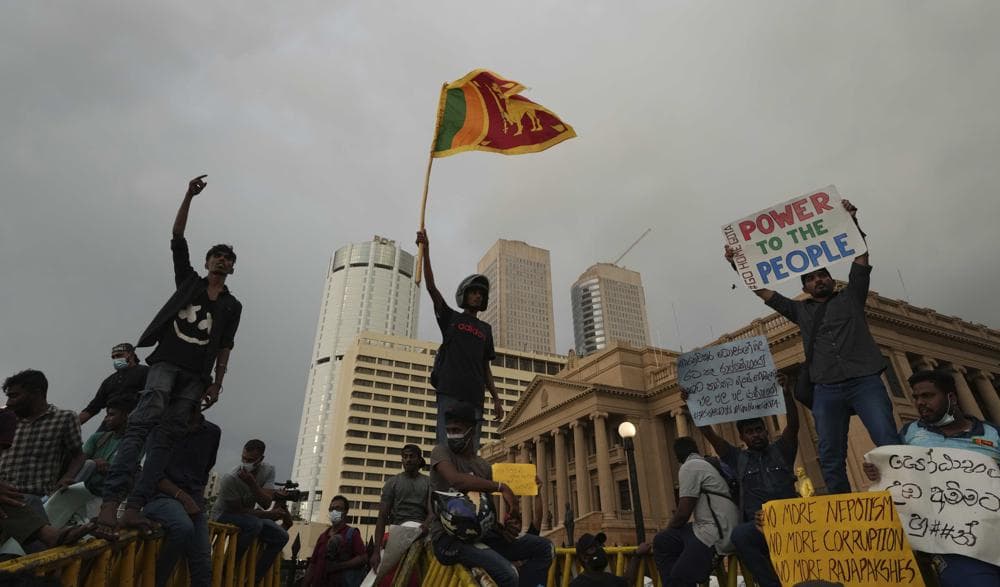MUMBAI – Amid a protracted economic crisis and what critics see as increasingly harsh crackdowns on anti-government protests, Sri Lanka’s leading Catholic prelate has called for snap elections so the country can select new leadership.
Speaking at a ceremony held to mark the centenary of St. Anthony’s College Katana, Cardinal Malcolm Ranjith said an election is necessary as it is not possible to develop the country with rulers who do not love their nation.
“You cannot have a future with those who only think of their survival without thinking of the country’s future,” the 75-year-old prelate said.
Although Sri Lanka is an overwhelmingly Buddhist nation where Catholics comprise only about five percent of the population of 22 million people, Ranjith nevertheless has long played an outsized role as a voice of conscience in national affairs.
Economic mismanagement, coupled with the effects of the COVID-19 pandemic, left Sri Lanka short of foreign currency reserves for essential imports at the beginning of 2022, triggering the island nation’s worst economic crisis in seven decades.
Severe shortages of food, medicine and fuel led to street protests that forced then-President Gotabaya Rajapaksa to flee the country and resign.
A new government under President Ranil Wickremesinghe came to power last July and negotiated a bailout package with the International Monetary Fund, the third since a long-running civil war in Sri Lanka finally ended in 2009. Last September, inflation hit an all-time high of 70 percent.
Though economic pressures have begun to ease somewhat, there is still widespread discontent in Sri Lanka, perhaps especially among the country’s youth.
Earlier this month, authorities in Sri Lanka fired tear gas and water cannons on students protesting in the national capital of Colombo to demand the release of dozens of anti-government activists arrested during protests a year ago.
In January, a coalition of human rights groups including Amnesty International called on the government to release a prominent student activism and also sounded alarms over a controversial antiterrorism law which is routinely used to arrest protestors and deny them bail.
Upcoming months will see the next round of austerity moves imposed as part of the agreement with the IMF, which are expected to produce sharp resistance from workers and the poor. The measures include the privatization of state-owned enterprises and the restructuring of the public sector, which may eliminate hundreds of thousands of jobs, along with deep cuts in social services.
Amid the unrest, the Wickremesinghe government, which came to power without an election, has repeatedly delayed plans for a new round of voting. Most recently, the government postponed local elections set for April 25, arguing that the budget allowed only for “essential expenses” and municipal elections were not essential.
Under Sri Lankan law, the next presidential election must be held sometime before September 2024. Ranjith, however, is insisting on moving to a vote immediately.
“We call for an election so that everyone who is over 18 years of age can decide on the nation’s future,” Ranjith said. “All we see today is an effort to bring in legislations to suppress the people’s rights,” he also said.














